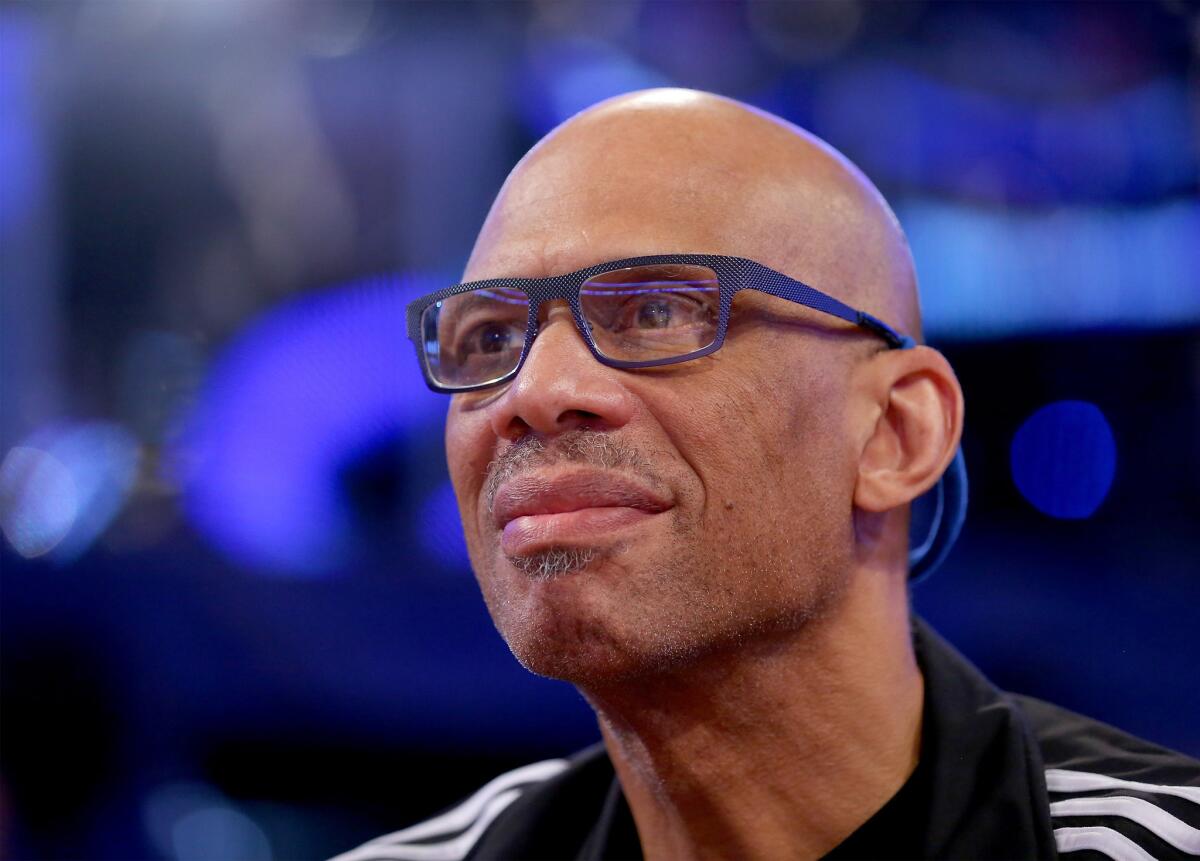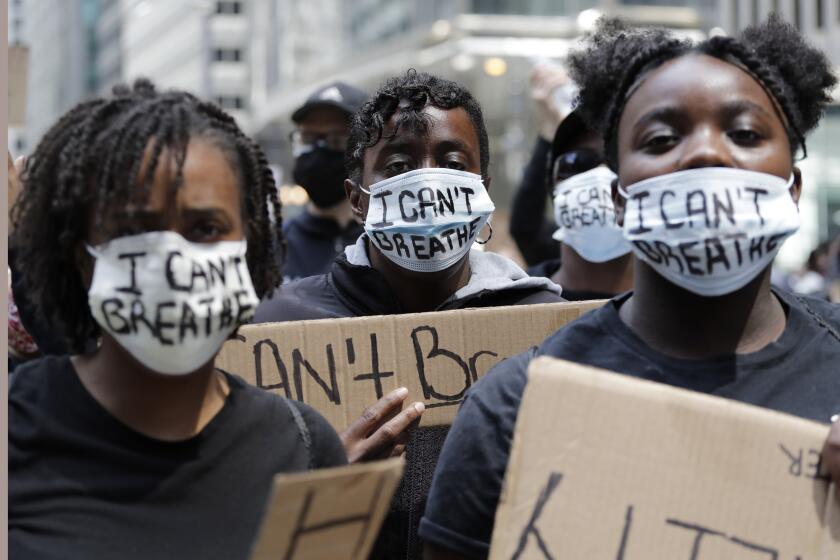Kareem Abdul-Jabbar reveals he had prostate cancer

- Share via
NEW YORK — Former Lakers great Kareem Abdul-Jabbar, writing about the health risks faced by Black people, has revealed that he had prostate cancer.
Abdul-Jabbar, the NBA’s career scoring leader, provided no other details about his diagnosis and illness in the lengthy essay he wrote for the medical website WebMD, which first appeared Wednesday. A publicist for Abdul-Jabbar said it was the first time he has spoken about the prostate cancer.
Abdul-Jabbar, now 73, was diagnosed with chronic myeloid leukemia in 2008.
In his essay, titled “Black Lives Matter,” Abdul-Jabbar wrote that Black people were at higher risk for heart problems and cancer. He noted that he has had heart bypass surgery.
“Being Black means I’m more likely to suffer from diabetes, heart problems, obesity, cancer, and a shorter life in general,” he wrote. “Yup, tall people and Black people have shorter life expectancies. So far, in keeping with these statistical risks, I’ve had prostate cancer, leukemia, and heart bypass surgery.”
The main concern of black people right now isn’t whether they’re standing three or six feet apart, but whether their sons, husbands, brothers and fathers will be murdered by cops.
Abdul-Jabbar acknowledged that he has been able to receive better care than many Black people, in part because of his celebrity and wealth, and because two of his sons work in the healthcare sector. He also said that the COVID-19 pandemic has illustrated “just how malignant the system is” for African Americans.
“The virus has hit the African American community at a much higher and more devastating rate than it has the white community,” he wrote. “At the same time, they receive a lower standard of care. The death rate for Blacks is 3.6 times higher than for whites.”
Abdul-Jabbar called on Americans to push for equity for Black people in mental and physical healthcare.
More to Read
Go beyond the scoreboard
Get the latest on L.A.'s teams in the daily Sports Report newsletter.
You may occasionally receive promotional content from the Los Angeles Times.











